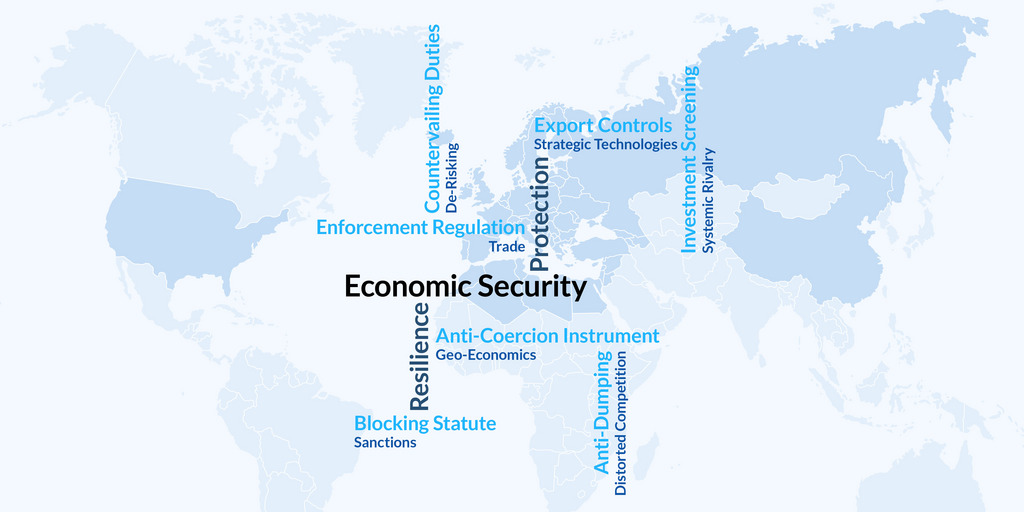The international landscape is marked by escalating geopolitical tensions, leading to the weaponisation of economic dependencies. In response, particularly since 2019, the EU has introduced a variety of new instruments aimed at safeguarding itself from unfair competitive practices, such as dumping and subsidies, and from coercive measures intended to effect political change through economic pressure.
For the instruments to be employed effectively, the member states must develop a common strategy, based on which they must act collectively and resolutely.
With these new instruments, the EU has managed to close some important protection gaps. Additional measures were proposed by the EU Commission in January 2024. However, some of these proposals are still in the early stages of development, especially those concerning common export controls for critical technologies and the regulation of EU investments in third countries related to these technologies.
Most of the new trade policy instruments can only be used if the Council of the European Union agrees by a qualified majority. There is therefore a risk that national special interests and concerns will hinder or at least delay effective EU action. This could be mitigated by a unified strategic vision among the member states that accurately assesses international economic security threats to the EU and endorses appropriate measures aligned with European goals and interests.
The combination of protective and promoting instruments is crucial for the success of the EU in the geo-economic age.
While the adopted protection instruments can shield the EU and its enterprises from economic harm, they do not, in themselves, foster competitive industries. Their impact is often temporary. It is, therefore, imperative to pair them with initiatives that bolster the EU economy and enhance its resilience, for example, through substantial investments in decarbonisation, digitalisation, and other future technologies, and by deepening the European single market.
All protective measures, including the fortification of its economic base, do not absolve the EU from evolving into a strategic entity adept in foreign and security policy alongside trade policy. Failing this transformation, the EU risks inadequacy in shaping the future world order on par with powers like the U.S., China, or Russia, based on its values and interests. Soft power, rooted in an attractive and sustainable economic model, remains essential but insufficient for survival in an era where economy and security are inextricably linked.




![[Translate to English:] Ein Werkzeugkasten steht auf Europa; flächige Karte im Untergrund](/fileadmin/files/_processed_/c/c/csm_AdobeStock_56161098_162857797_KONZERN_Montage_07_a08a925809.png)
![[Translate to English:] Die Flagge der Europäischen Union und Amerikas auf einer Backsteinmauer.](/fileadmin/files/_processed_/4/a/csm_AdobeStock_322789768_KONZERN_ST-EZ_01_e3ea966899.jpg)
![[Translate to English:] Weltkarte](/fileadmin/files/_processed_/2/e/csm_AdobeStock_143550481_KONZERN_ST-EZ_ID-1729_Titel_Interconnectivity_2023_02_535bd86918.jpg)


